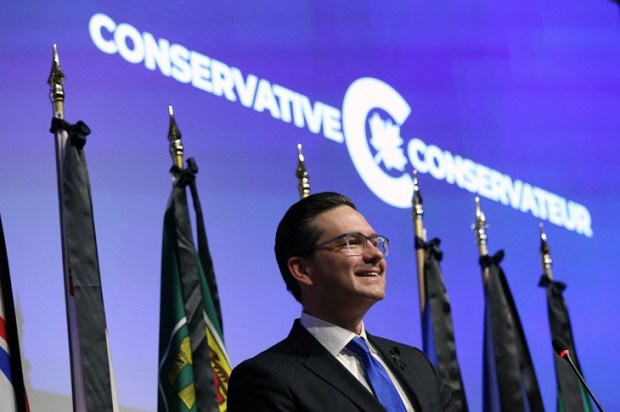Conservatives today tend to fall into two camps when discussing the immigration issue. The first camp are neo or classical liberals. For these types of conservatives, immigration is largely understood along economic lines. They believe that if a country will prosper by bringing in new people, it should do so as long as those brought in are qualified to do their job and the process can be reasonably controlled. Individuals in this camp include Canada’s Andrew Coyne, Jon Utley of the American Conservative, and most of the Europhiles in the British Conservative party, including former prime minister David Cameron. For each other, these figures, a theoretically more diverse country is either to be welcomed, or is at least a small price to pay for greater economic prosperity for all.
The second camp are immigration hardliners. For these types of conservatives, immigration is understood first and foremost along the lines of social identity. They believe that, whatever other benefits they might bring, immigrants are a threat to the country because they unacceptably change its culture, ethnic, and in some cases racial identity. Some conservatives in this camp will grudgingly concede that immigrants may bring marginal economic benefits, while others will claim they are ultimately a drain on society and the welfare state. The more extreme figures, like Canada’s Ricardo Duchesne and Stefan Molyneux will even claim that immigration brings the increased risk of violence and ethnic tensions.
In this brief article, I am going to discuss the roots of the impasse to explore why some conservatives emphasize economic prosperity and others social identity. I will conclude with a few criticisms of the latter approach, explaining why I think social identity shouldn’t trouble us as much as it does.
The conservative emphasis on social identity has deep roots in the intellectual history of conservatism. The most prominent early figure who emphasized social identity was Edmund Burke. His most famous work, Reflections on the Revolution in France, was a polemic against the rationalist French Revolutionaries who emphasized the eternal and universal character of all human beings and the natural rights they were all to enjoy. For Burke, there is no such thing as an eternal and universal character belonging to all human beings. While we all share certain physical, mental, and even moral characteristics with each other, what makes us different is more politically important than what makes us the same. For Burke, different societies have developed distinct practices and cultures which suit their needs and values. Political leaders should not try to changes these societies too drastically, lest they risk a backlash by citizens who remain attached to the way things were. As he artfully put it:
Instead of casting away all our old prejudices, we cherish them to a very considerable degree, and, to take more shame to ourselves, we cherish them because they are prejudices; and the longer they have lasted and the more generally they have prevailed, the more we cherish them. We are afraid to put men to live and trade each on his own private stock of reason; because we suspect that this stock in each man is small, and as that the individuals would do better to avail themselves of the general bank and capital of nations and of ages.
This conservative emphasis on social identity has persisted down to the modern era. Intellectuals like Michael Oakeshott and Roger Scruton, jurists like Robert Bork, and of course politicians like former Canadian prime minister Stephen Harper have all taken up this Burkean cause in lighter or starker forms. But Burkeanism is inherently a moderate position on identity. It accepts that change will occur, but maintains that it must take place slowly and in keeping with the temperament of the national population. To paraphrase Roger Scruton, identity-oriented conservatism is about changing what one must to conserve what one can.
In recent years we’ve seen many conservatives move away from a moderate emphasis on identity. Instead, what I call post-modern conservatism has moved from Burkeanism to an extreme reactionary mentality. Post-modern conservatives are keen to turn back the clock on any changes to the social identity which have taken place in the past decades and aren’t afraid to flirt with illiberal policies to do it.
I think this emphasis on social identity is wrongheaded and misguided along a few axes. Here I’ll just summarise one. When you boil it down, I think the neo and classical liberal conservatives are mostly right on this issue. Social identity is all well and good. But it is a pretty abstract idea when you think about it. It is complicated enough trying to decide who each person is as an individual. This becomes vastly more complex when you try to suss out things like social identity. As a result, there will always be cracks in our collective self-understanding; much like there will be when we try to figure out who we each are as individual people. Rather than focusing on this, we should prioritise more concrete things like putting food on the table and a roof over our heads. To the extent greater immigration and toleration can help with that, we should welcome it.
Got something to add? Join the discussion and comment below.
Got something to add? Join the discussion and comment below.
Get 10 issues for just $10
Subscribe to The Spectator Australia today for the next 10 magazine issues, plus full online access, for just $10.


























Comments
Don't miss out
Join the conversation with other Spectator Australia readers. Subscribe to leave a comment.
SUBSCRIBEAlready a subscriber? Log in